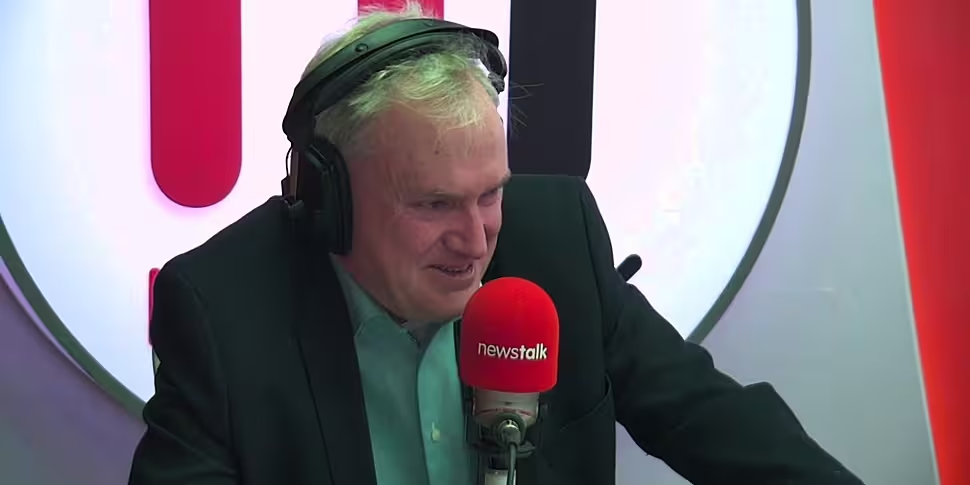Professor Luke O'Neill says travel restrictions are about slowing down the spread of the Omicron variant of COVID-19, not stopping it entirely.
The leading immunologist said it's also hoped vaccines will still protect against severe illness from the new variant - but vaccine manufacturers could have a new vaccine to target the new strain ready by early next year if needed.
News of the Omicron variant first emerged late last week, after cases were detected in southern Africa.
It prompted many European and western countries - including Ireland - to quickly impose significant travel restrictions for arrivals from impacted countries, amid fears the new variant could be more transmissible.
Meanwhile, a growing number of other countries - including England, Scotland, Belgium and Germany - have reported their first cases of the variant in recent days.
On The Pat Kenny Show, Professor O'Neill - Professor of Biochemistry at Trinity College - stressed there are still "many, many unanswered questions" about the new variant.
He said: “There was a hopeful sign - a South African doctor reported that about 20 patients had it, and they didn’t get especially sick. They were young and healthy people, though.
"Had it changed into a really nasty form that made young people sick, that would have been a worry. That doesn’t seem to be the case, so we’ll keep our fingers crossed.
“In the coming days, we’re going to get more and more data on it. I would predict by the end of this week we’ll know whether the antibodies are less effective against it - labs can [test] that in a test tube."
Based on the changes to the virus spike protein, Professor O'Neill said we can expect the new variant to be more transmissible than initial strains.
However, he noted: "It could well be less troublesome when it infects you - you get a version that spreads more but makes you less sick. That would be a dream come through.
“The antibodies probably will go down in their power against this - but remember if you have a booster, you make so much antibody… quantity trumps quality. They still could swamp it.
"And remember the t-cells are still there… they’re the second armour of the immune response. This spike difference shouldn’t really affect the t-cell response.
“You might see slightly more symptoms, possibly. But again the hope is the vaccines will still prevent severe illness.”
Vaccines
Vaccine manufacturers BioNTech and Moderna have already said they can prepare a 'tweaked' vaccine to specifically target Omicron if needed - something that could be ready as early as February or March.
However, Professor O'Neill said there's cause for optimism the ongoing booster vaccine campaign will be effective anyway.
For now, authorities will be hoping flight restrictions will buy time to get more people their third doses.
Professor O'Neill said: “The purpose of stopping flights isn’t to stop the thing getting in - it’s probably here already, remember.
"It wouldn’t surprise me if there was one [case] in Ireland - the amount of travel between Ireland and the UK is such that there could well be a case in Ireland. There will be a case in Ireland, eventually.
“The business of controlling flights is just to slow it down and get ready. The UK has said that they’re going to slow it down and get the booster out in that time.
“The travel restrictions aren’t about stopping it - it’s about slowing it down.”
He also suggested the emergence of Omicron shows the world "didn't do a good job" in getting vaccines to developing countries.
He noted: “It reemphasises we’ve got to vaccinate the world. There’s a risk of more variants - this is the latest one causing consternation, and there’s no reason to think there wouldn’t be another variant coming up later.
"It emphasises the essentialness of the vaccine supply going into developing countries, both for ethical reasons and then to stop variants arising.”
He said South Africa is one country that did have "loads of vaccine" available, but the problem there has been around getting the vaccines into people's arms.
However, he also said South African scientists deserve "huge credit" for identifying this new variant and getting the data out very quickly.









